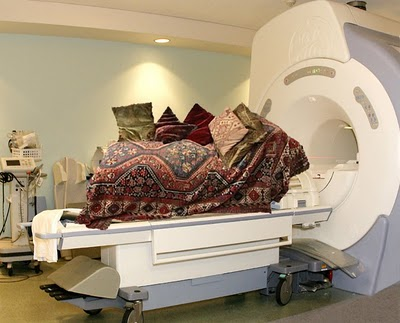
Rarely does a day go by without hearing about another “advance” in the neurobiology of human behavior. Suddenly, it seems, the world of psychotherapy has discovered that people have brains! And now where the unconscious, childhood, emotions, behaviors, and cognitions once where…neurons, plasticity, and magnetic resonance imagining now is. Alas, we are a field forever in search of legitimacy. My long time colleague and friend, Mark Hubble, Ph.D., sent me the following review of recent developments. I think you’ll enjoy it, along with video by comedian John Cleese on the same subject.

Mark Hubble, Ph.D.
Today, while contemplating the numerous chemical imbalances that are unhinging the minds of Americans — notwithstanding the longstanding failure of the left brain to coach the right with reason, and the right to enlighten the left with intuition — I unleashed the hidden power of my higher cortical functioning to the more pressing question of how to increase the market share for practicing therapists. As research has dismantled once and for all the belief that specific treatments exist for specific disorders, the field is left, one might say, in an altered state of consciousness. If we cannot hawk empirically supported therapies or claim any specialization that makes any real difference in treatment outcome, we are truly in a pickle. All we have is ourselves, the relationships we can offer to our clients, and the quality of their participation to make it all work. This, of course, hardly represents a propitious proposition for a business already overrun with too many therapists, receiving too few dollars.
Fortunately, the more energetic and enterprising among us, undeterred by the demise of psychotherapy as we know it, are ushering the age of neuro-mythology and the new language of neuro-babble. Seemingly accepting wholesale the belief that the brain is the final frontier, some are determined to sell us the map thereto and make more than a buck while they are at it. Thus, we see terms such as “Somatic/sensorimotor Psychotherapy,” “Interpersonal Neurobiology,” “Neurogenesis and Neuroplasticity,” “Unlocking the Emotional Brain,” “NeuroTherapy,” “Neuro Reorganization,” and so on. A moment’s look into this burgeoning literature quickly reveals the existence of an inverse relationship between the number of scientific sounding assertions and actual studies proving the claims made. Naturally, this finding is beside the point, because the purpose is to offer the public sensitive, nuanced brain-based solutions for timeless problems. Traditional theories and models, are out, psychotherapies-informed-by-neuroscience, with the aura of greater credibility, are in.
Neurology and neuroscience are worthy pursuits. To suggest, however, that the data emerging from these disciplines have reached the stage of offering explanatory mechanisms for psychotherapy, including the introduction of “new” technical interventions, is beyond the pale. Metaphor and rhetoric, though persuasive, are not the same as evidence emerging from rigorous investigations establishing and validating cause and effect, independently verified, and subject to peer review.
Without resorting to obfuscation and pseudoscience, already, we have a pretty good idea of how psychotherapy works and what can be done now to make it more effective for each and every client. From one brain to another, to apply that knowledge, is a good case of using the old noggin.

Leave a Reply